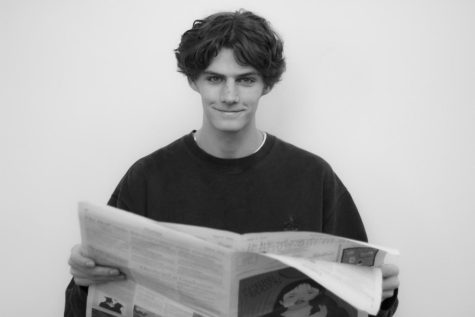We need to change our expectations
March 24, 2023
All of our criticisms, values and judgments take place inside a restricting bubble of expectation. Everything is understood in its relation to our previous notions of what life should look like; what we have been conditioned into believing is realistic or impossible. This bubble of expectation determines our want for and opinions about all progress, scaling positive change down to society’s understanding of it, instead of society’s potential for it.
Social critic Paul Lafargue showed a clear example of this in his late 19th century criticisms of industrial Europe. Lafargue spent most of his short book, The Right to Be Lazy, highlighting the miserable conditions of factory workers in his time. But Lafargue’s book criticized not only the 14-hour working days, but additionally a popular two-hour proposed decrease, claiming “…the miserable reduction of two hours has increased English production by almost one-third in ten years, what breathless speed would be given to French production by a legal limitation of the working day to three hours.”
While others were celebrating this proposed reduction, Lafargue was writing pages of outrage directed towards it, calling for working days of three hours instead and proving this claim’s potential by testing it to reality instead of expectation. Lafargue saw the injustice of the brutal conditions and tried offering a prescription not relative to society’s predetermined notions of what work should be, but instead to what it could be. The increased effectiveness of machinery, large amounts of surplus goods produced and millions of workers available made Lafargue measure alternatives by what was possible instead of what was better in comparison. This approach to progress, the redefining of expectations as relative to reality instead of tradition, allowed for Lafargue’s book to reach outside the bubble of expectation and radically change the issues of his time.
Today, this type of approach is needed in many areas of society; however, we can most clearly make out its need in politics. The unseen but all-encompassing realm of expectation completely surrounds and blinds our perception of flawed government, defending its shortcomings as expected and subsequently deflecting any effort made to fix them. The failure of the two parties to meaningfully act on glaring, sometimes existential problems we face proves this point. Instead of increasing the quality of life and ensuring a better future, Republican leaders fearmonger to their base that a new minority group will take their jobs or corrupt their kids, while Democrats instead focus on watered-down, status-quo failures of neoliberal policy that only serve to distract from their similar uselessness.
We are faced with unbelievable inequality, massive environmental problems and constant challenges to our democracy, but for some reason remain locked into this two-party duopoly. The failure of progressives to take advantage of this inadequate political system only further proves that the unseen element of expectation is what holds us back. Author Aldous Huxley predicts and sums this up to author George Orwell in a 1949 letter, saying, “…the lust for power can be just as completely satisfied by suggesting people into loving their servitude as by flogging and kicking them into obedience.” Huxley’s world of convinced servitude is being realized in our flawed expectations, measuring progress not by our potential for it, but by our current failures to realize this potential. The understanding of this progress hindering expectation is crucial in the confrontation of serious and unsolved problems we face.


